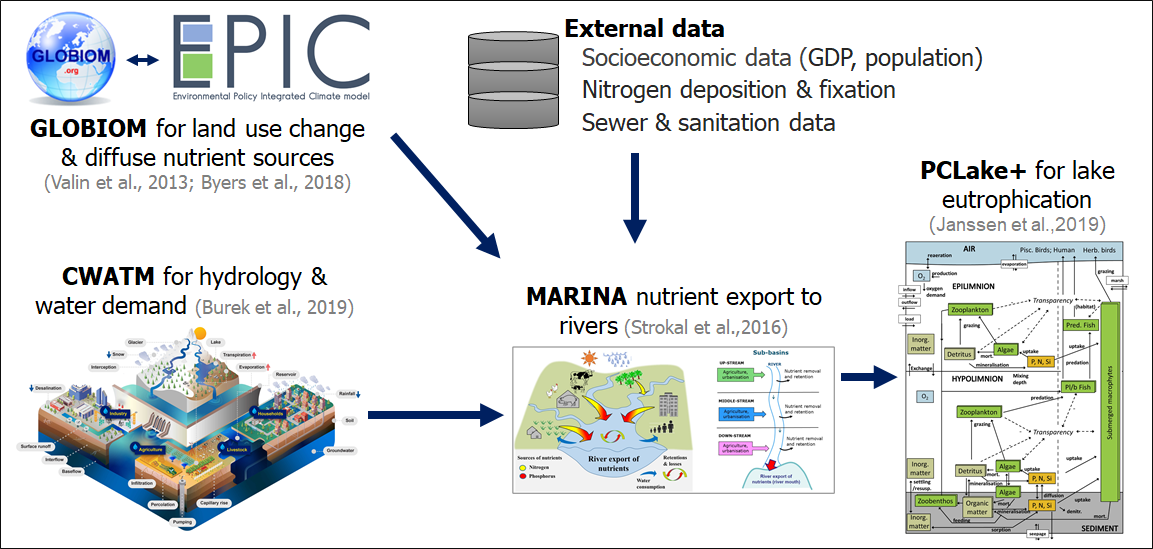
This is a PhD Project under the scope of inventWater, which aims to develop innovative global indicators for water quality status (especially eutrophication) and changes in selected lakes worldwide, accounting for climate change, socio-economic development scenarios to facilitate water resources management and policy making.
Human activities on land and climate change strongly influence pollutant loading into lakes, leading to various water quality issues such as eutrophication compromising the lake ecosystems and its provisioning for food and water resources. To guide evidence-based policy and decision making, integrated modelling framework and emerging monitoring techniques (e.g., remote sensing) will be used for the assessment of indicators relevant to global eutrophication. The proposed project includes mainly three parts:
- Long-term (e.g., 1980s-present) historical trend assessment of water quality status of selected lakes worldwide (e.g., Lake Taihu, Lake Tana, Lake Erie, Lake Superior, Lake Titicaca, Lake Taupo, Lake Constance) using an integrated water quality modeling framework and incorporating remote sensing (RS) datasets (e.g., 2010-present). In particular, the global RS products (e.g., from World Bank and Copernicus) will be used for model performance evaluation.
- Development of critical indicators of lake water quality by linking the long-term trend to the driving forces such as climate change and land-use change with the combination of statistical and/or machine learning techniques.
- Mid- and long-term projections and scenario analyses to provide policy and management recommendations supported with at least one case study (e.g., Lake Victoria).
The expected outcomes of this PhD project are summarized below:
- Integrated modeling framework to assess the critical water quality indicators for eutrophication in lakes and modeling results integrated with remote sensing datasets.
- Critical water quality indicators accounting for the impacts of climate change, socio-economic development, and human related activities, to assess eutrophication in the representative global lakes using a modeling framework.
- A detailed assessment of the critical water quality indicators at the regional scale incorporating stakeholder co-design, to provide policy and management recommendations.
 © IIASA
© IIASA
This PhD project is jointly supervised by IIASA, Utrecht University and Wageningen University & Research.
InventWater has received funding from the European Union Horizon 2021 research and innovation programme under the Marie Sklodowska-Curie grant agreement 956623, MSCA-ITN-ETN – European Training Network.


